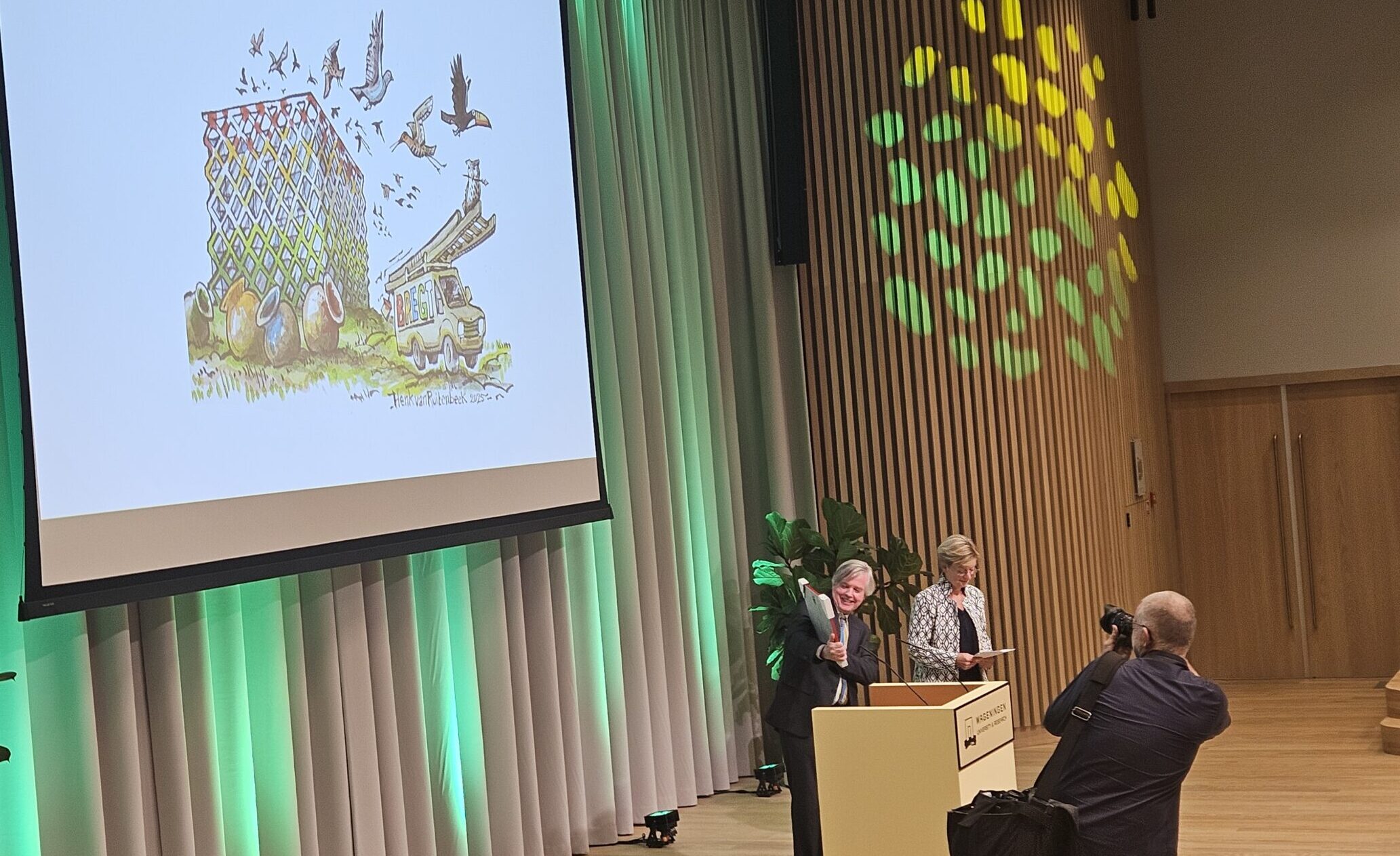The analysis of the gender balance among WUR’s cadre of professors in the last number of Resource calls for follow-up, of course. Because what do we think of the fact that men are still in the majority? And what are our ideas on the tempo at which gender diversity is increasing? Three female perspectives.
Martha Bakker, Chair-holding professor of Land Use Planning
‘Nowadays I am in favour of positive discrimination. In spite of all the good intentions, far too little has changed in the gender balance in professorial positions. So I don’t think it’s such a bad idea to make academic vacancies open to women only for a while, as the Technical University of Eindhoven is now doing. We’ve got to force matters a bit now, so that the new generation doesn’t grow up with the unconscious gender bias that is still very much in evidence. Because as long as that is still at work, women do not have the same chance of a nice academic career as men.

Gender bias is simply a fact in the academic world. It means that papers by woman authors are rejected more often than those by men – unless there is a double-blind review – and that women are systematically awarded less seniority than men. I applaud WUR for using the tenure track to make sure that assessment is more or less objective – and straightaway, we are seeing more women getting higher up the ladder on that trajectory. But the fact that the proportion of women gets smaller with every rung of the career ladder suggests that there is still a glass ceiling. That might be because at the higher echelons there are still a lot of men who were appointed in times gone by, but it could also be that the committees in charge of applications and appointments are too subjective, to women’s disadvantage. So it is high time all the Appointment Advisory Committees were sent off on gender courses. But a preferential policy would be even better.
The argument that “we go for quality” as an excuse not to adopt a preferential policy is nonsense, of course. As if quality cannot be combined with being a woman. Women themselves should set aside their objections to such a preferential policy for now. The fear of being seen as a token woman is so unjustified. As a women you have probably had to prove your worth much more than your male colleagues. So we could do with a bit more self-confidence.’
Tinde van Andel, Special professor of Ethnobiology

‘I think Resource is right about the relation between the old boys’ network and the relatively low number of women special and endowed professors. To become a special professor you need not just a rock-solid track record and an outstanding CV, but also a very good network of influential people who are willing to lobby for you. And men have always been better placed in this regard than women. It is not easy to obtain an endowed or personal chair. For a start, there must just happen to be a lobby in your field of expertise that is powerful enough to establish a chair. Universities don’t hand out such prestigious posts lightly. And another factor is that those chairs are usually financed by external parties, who often already have a candidate in mind. And that is not usually a woman. That isn’t necessarily ill will, but the pattern of men nominating and appointing men is just very persistent. To break through that, I don’t think it’s a bad idea to ask the financing parties to put forward more than one candidate for “their” chair in future, and to stipulate that at least one of them must be a women. And WUR could use the same approach to stimulate a shift towards more cultural diversity among the special professors.’
Lidwien Poorthuis, National network of women professors (LNVH)

‘Every year, when LNVH’s Monitor of Women Professors comes out, we hold talks with universities about percentages and numbers, as well as about the fact that women with the ambition to become professors still do not have equal starting points and opportunities with men. That is mainly a question of bias in recruitment and selection procedures. Appointment advisory committees, for example, base their ideal picture of a professor strongly on the male norm. It is sometimes suggested that objective, hard career criteria offer a way of preventing bias and doing something about the persistent lack of gender diversity in the academic world, but I have my doubts about that. Even objective criteria can inadvertently have an excluding effect on women, and above all, sciences does itself a disservice if all the professors-to-be must fit one rigid mould. I see more of a future in awareness-raising and knowledge. In training all committee members, for instance. Confront them with their own, often unconscious prejudices, and teach them how they can look at people’s qualities in a different, unprejudiced way. There are definitely more roads to Rome than the one that male professors have always taken up to now. I also think it is crucial to educate young scientists in inclusive leadership right from the start. That way you ensure sustainability and you train the scientists of the future to look at the quality of science through a different, more inclusive lens.
The leaders of the university have an important role in this, of course. So, for example, don’t accept appointments by advisory committees who haven’t had any training on this – or if not all of them at least the chairperson. Clear guidelines are indispensable. And intervene if you see undesirable situations arising. I am shocked, for instance, that Resource reports that only five women at WUR are special or endowed professors – less than eight per cent. That is way below the national average of 18 per cent in 2016, when we could still analyse those percentages at LNVH. I am very curious to see what WUR is going to do to put that right. With such low percentages, there is almost no option but to resort to crowbar-like measures for opening up the academic world to women.’

 Text: Marieke Enter. Illustration: Henk van Ruitenbeek.
Text: Marieke Enter. Illustration: Henk van Ruitenbeek. 

